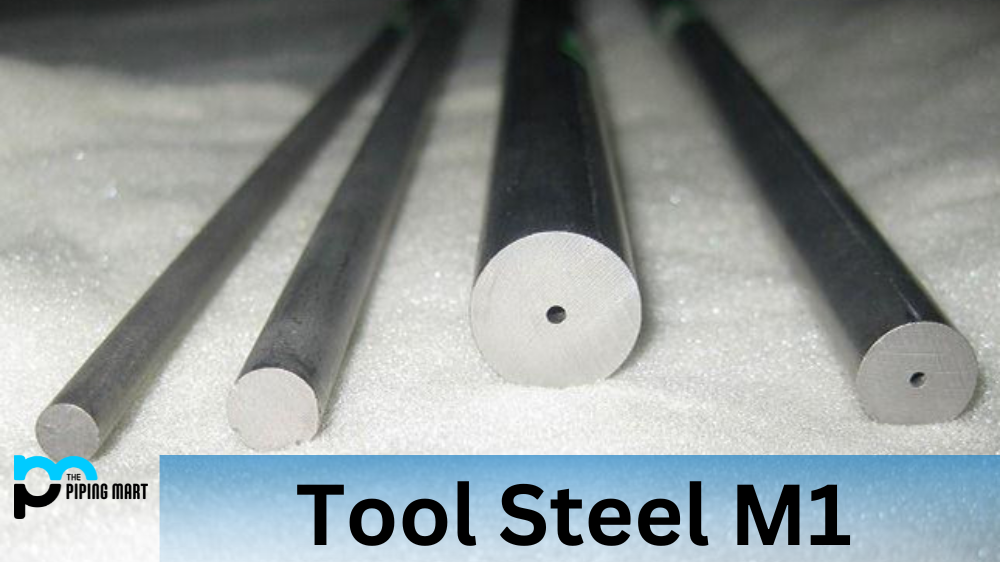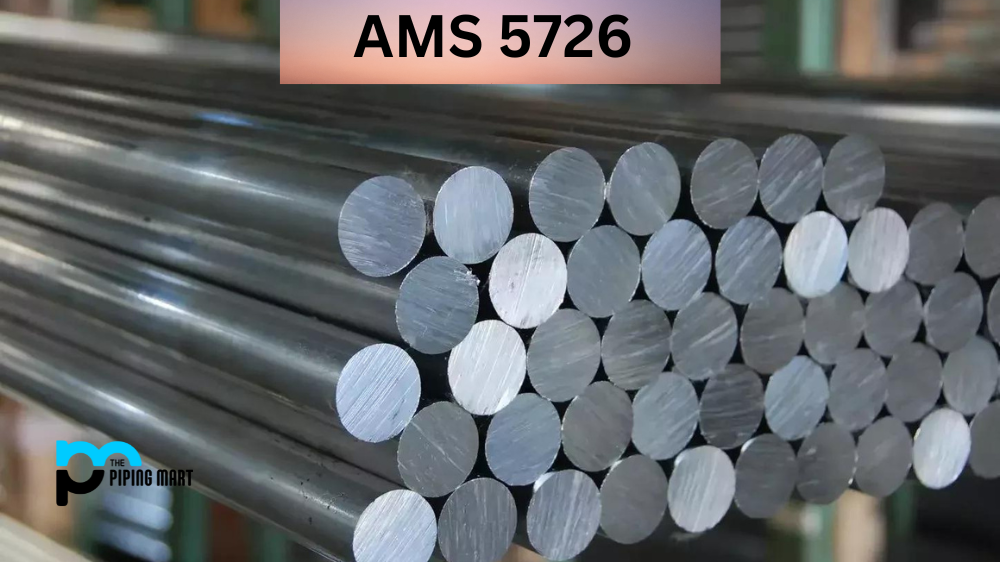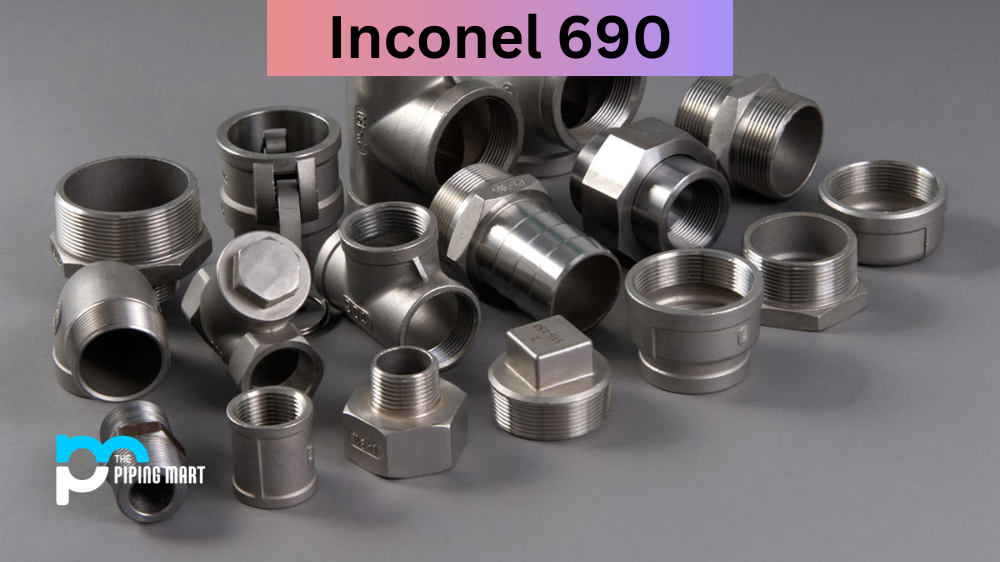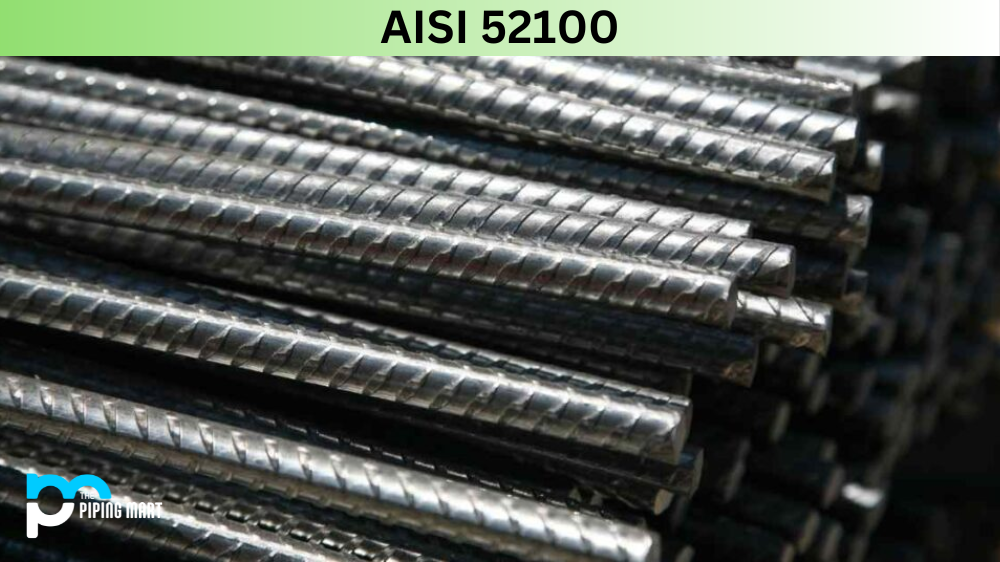Tool steel is a type of steel used for making tools and components. Tool Steel M1 is a high-speed steel that contains tungsten and cobalt. It is known for its superior wear resistance, heat resistance, and toughness. It’s also the most popular grade of high-speed tool steel due to its combination of properties and affordability. Let’s take a closer look at this versatile tool, steel.
M1 Tool Steel Composition
M1 Molybdenum High Speed Tool Steel contains 1% Tungsten, 0.5% Cobalt, 0.7% Carbon, 4% Chromium, 7% Vanadium, 1% Molybdenum, 0.2% Silicon, and trace amounts of Manganese and Sulfur. Its chemical composition gives it superior wear resistance compared to other grades of tool steel and excellent heat resistance up to 1050°C (1922°F). Additionally, its mechanical properties include good machinability, shock resistance, and a relatively low cost compared to other grades of tool steel.
| Element | Content |
|---|---|
| C | 0.78-0.88% |
| Mn | 0.15-0.40% |
| Si | 0.20-0.50% |
| Cr | 3.50-4.00% |
| Ni | 0.30% |
| Mo | 8.20-9.20% |
| W | 1.40-2.10% |
| V | 1.00-1.35% |
| Cu | 0.25% |
| P | 0.03% |
| S | 0.03% |
M1 Tool Steel Chemical Properties
Tool steel M1 is a unique material commonly used to produce tools and components capable of withstanding heat and prolonged use. This steel’s alloying elements provide impressive chemical properties, such as its strength, wear resistance, and hardness. Further, when subjected to heat treatment procedures, Tool Steel M1 develops an even more extensive range of physical and mechanical characteristics, making it suitable for many helpful applications. It’s no wonder why Tool Steel M1 can be found in almost every modern manufacturing industry.
M1 Tool Steel Mechanical Properties
Tool steel M1 is a versatile tool steel grade known for its excellent mechanical properties. It is typically used in complex high-dimensional applications where parts are subjected to high-performance requirements. The properties of this type of tool steel make it ideal for these types of products since its wear resistance and compressive strength enable it to hold up against even the highest standards of use. Moreover, its strength retention during heating, excellent toughness and machinability provide an easy fabrication process. With these qualities, M1 can be applied across any industrial setting where stringent requirements are present.
| Mechanical Properties | Metric | Imperial |
|---|---|---|
| Hardness, Rockwell C | 60.0 – 65.0 | 60.0 – 65.0 |
| Poisson’s ratio | 0.27-0.30 | 0.27-0.30 |
| Elastic modulus | 190-210 GPa | 27557 – 30457 ksi |
M1 Tool Steel Physical Properties
Tool steel M1 is a highly versatile material known for its versatility and resistance to high temperatures. It has excellent wear resistance, with good strength and hardness properties even at extreme temperatures. Beyond physical properties, tool steel M1 also has outstanding corrosion and oxidation resistance, ensuring it can withstand many environmental factors. Thanks to its superior characteristics, it is a go-to choice for machining tools in almost any application when properly treated. If you need steel that can keep up with heavy-duty use, then M1 tool steel is a perfect choice.
| Physical Properties | Metric | Imperial |
|---|---|---|
| Density | 7.89 g/cc | 0.285 lb/in3 |
| Melting Point | 1427°C | 2600°F |
M1 Tool Steel Thermal Properties
| Thermal properties | Metric | Imperial |
|---|---|---|
| CTE, linear | 10.1 μm/m °C | 5.61 μin/in °F |
M1 Tool Steel Equivalent
- AFNOR 08-04-02-01
- DIN 1.3346
- UNI X 82 MoW 09 KU
- B.S. BM 1
- FED QQ-T-590
- SAE J437
- UNS T11301
- ASTM A600 (M-1)
- SAE J438 (M-1)
M1 Tool Steel Uses
Tool Steel M1 can be used in applications such as dies & punches for cold forming processes, blanking dies for light gage materials and thin sheets, taps & reamers for machining applications, cold shear blades for cutting sheet metal or rods up to 6mm thick (0.25 inches), thread rolling dies for producing threads on bolts or screws with internal threads, broaching tools for machining surfaces with grooves or keyways on them; shaping tools such as milling cutters & drills; and more!
Corrosion Resistance
Tool Steel M1 also exhibits good corrosion resistance in mild environments but not in stronger acidic or alkaline solutions due to chromium in the alloy, which can be affected by these solutions over time.
Heat Treatment
Tool Steel M1 can be hardened by heating it slowly to 830°C (1526°F) and then quenching in oil or air cooling after that temperature has been reached. For tempering temperatures ranging from 150-610°C (302-1130°F), it’s important that you use either salt bath furnaces or vacuum furnaces with protective atmospheres so that the material doesn’t become oxidized during heat treatment due to air contact with the hot material surface.
Machining
When machining Tool Steel M1, you should use medium-speed cutting tools with sharp edges because this will reduce friction between the tool bit and workpiece, thus reducing wear on both items and increasing productivity since less force is required when using sharp cutting edges instead of dull ones. When welding Tool Steel M1 you must preheat before welding, then post-weld heat treats at temperatures ranging from 760-1040°C (1400-1900°F).
Welding
Tool Steel M1 welding requires a unique set of materials and techniques, as it is far more difficult to process than other steel varieties. Those looking to weld it should ensure that the surfaces to be joined are thoroughly cleaned before attempting any kind of contact. An experienced welder may also want to consider preheating the metal, which can help prevent cracks from appearing when it’s worked on. Additionally, temperature control should be kept in mind during the process: when too cold, Tool Steel M1 will break easily; too hot and it won’t form properly. With careful consideration of all aspects involved in tool steel welding, one can have peace of mind that their welds will last for many years.
Conclusion
Tool Steel M1 is one of the most popular types of tool steels thanks to its combination of properties that make it ideal for many applications, including cold forming dies & punches, taps & reamers, cold shear blades, thread rolling dies and more! Its chemical composition gives it superior wear resistance compared to other grades and excellent heat resistance up to 1050°C (1922°F). Plus, its mechanical properties include good machinability and shock resistance, making it suitable for use in many industries where precision is needed, such as automotive manufacturing or aerospace engineering. With proper heat treatment techniques and careful selection of cutting tools when necessary, you can get optimal performance out of your Tool Steel M1 components!

Meet Bhavesh, a seasoned blogger with a wealth of knowledge and experience. From metal products manufacturing to retail, Bhavesh has a diverse background in various industries and is dedicated to sharing his insights and expertise with readers.




